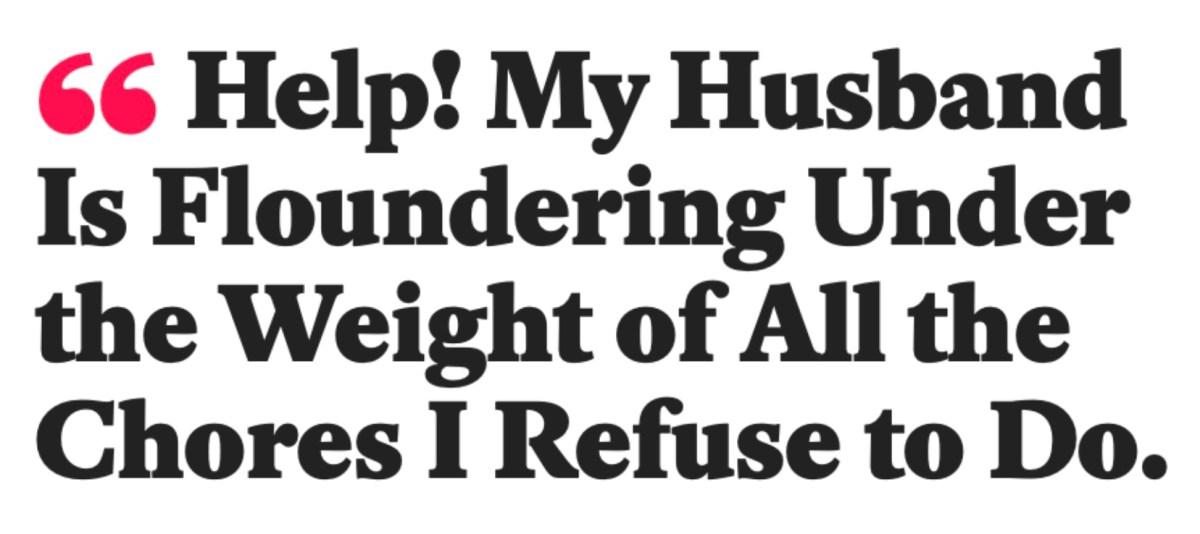Writing in the New York Times, Charlie Savage observes about one of the lawsuits against Donald Trump: “Because those cases are civil, Mr. Trump could choose not to attend the trials, just as he shunned an earlier lawsuit by Ms. Carroll, in which a jury found him guilty of sexual abuse.”
That is, of course, not true: Donald Trump, as of this writing, has not been found guilty of anything.
The sentence was afterward amended—without any acknowledgment of the error—to “liable for sexual abuse.” References to the original formulation remain online, and one may assume that they will remain there forever. The distinction is important for a few reasons: First is the obvious one, that journalists should try to represent facts accurately; second is the necessity of preserving the unique legal status of a criminal conviction in a time when progressives are attempting to strip Americans of their civil rights when they have not been convicted of—or even charged with—any crime; third, related to the second, is the emergence of what amounts in effect to a new quasi-legal standard in our public life: “credibly accused.”
Last week, I mentioned this Slate piece in which Abigail Esman argued that Americans should have their civil rights suspended based not on a criminal conviction or even an indictment but on … strangely, she never gets around to suggesting a standard of evidence, not because there isn’t one—there is!—but because it is one that she and others of her stripe would not like to acknowledge in public: She believes Americans should be penalized, up to and including the forfeiture of their legal rights, based on the say-so of the right sort of person, presumably people such as herself. The headline over her essay reads, “SCOTUS Is Really Considering if Domestic Abusers Should Be Allowed Guns,” and she writes:
So let’s be clear: the U.S. Supreme Court decision last week to consider the case of United States v. Rahimi, determining whether someone with a history of domestic violence may own a gun, is about far more than domestic abuse and its victims. It’s about America’s national security. Our national security.
If you thought it was only 9/11-era right-wingers who favored stripping dodgy-seeming swarthy young men with Middle Eastern-sounding names (Rahimi is an Iranian surname) of their civil rights without due process, then you haven’t been paying attention. In spite of what Esman and Slate claim, the case does not involve anybody with “a history of domestic violence” where the law is concerned; Rahimi seems to be a terrible thug, but he has never been charged with domestic violence, much less convicted of it. He seems—to me—very much like somebody who ought to be locked up for a good long while, but he hasn’t been convicted of anything that would bring that about. He may be, eventually—it seems likely that he will be convicted on at least a few of the raft of criminal charges headed his way. But I, the Jury, is a Mickey Spillane novel—not a legitimate model of jurisprudence. The legal standard is the one that matters here—the question before us isn’t whether Zackey Rahimi should be invited to Thanksgiving dinner, but whether he, and others in his position, should be relieved of their civil rights or face other legal sanctions without being charged with or convicted of any crime that would warrant it.
We have all sorts of procedural protections for people accused of wrongdoing because—as they knew even way back in the 18th century!—anybody can be accused of anything. If you want an indicator of how irresponsibly and maliciously such accusations can be—and how very slack the standard of “credibly accused” is, in practice—you need only look elsewhere in Esman’s essay, where she writes:
So now it is up to the Supreme Court—the same Supreme Court that includes one judge credibly accused of sexual assault, another with a history of sexual harassment, and a third whose Pentecostal religion holds that women are to obey the demands and orders of men—to decide.
At an elementary level, this is a simple smear, of course, the suggestion that the Supreme Court cannot be expected to make the right ruling on a legal question because of the alleged moral depravity of its members, as asserted (though, of course, never quite demonstrated) by their political enemies. Two of these claims I will not spend very much time on, only to note: Clarence Thomas does not have “a history of sexual harassment,” he has a history of having been accused of sexual harassment in a lurid episode that involved everything from factual inconsistencies to what one senator at the time characterized as “flat-out perjury”; Amy Coney Barrett does not profess a “Pentecostal religion,” and instead is a Roman Catholic who belonged to an ecumenical group that has been the focus of absurd conspiracy theories cooked up by people laboring under the delusional belief that they are living in a Margaret Atwood novel. (We aren’t living in The Handmaid’s Tale—we are living in Infinite Jest.) The third claim interests me a little more, because of its assumption that the “credibly accused” standard ought to be considered persuasive in this context.
I should begin with the fact—and it is a fact—that Justice Brett Kavanaugh has not been “credibly accused” of sexual assault, or even “credibly accused of rape” as Slate falsely asserted on another occasion before withdrawing that particular instance of defamation.
Kavanaugh was accused of all sorts of things by a number of people, some of whom were completely fabricating their stories, as in the case of left-wing activist Judy Munro-Leighton, who had never met Kavanaugh and later admitted as much; Julie Swetnick “walked back allegations,” in the terrifically weaselly journalistic phrase, and suggested that those who doubted her story contact her corroborating witnesses, who included a dead person and someone who said he’d never met anybody called Julie Swetnick. Kavanaugh’s main accuser, Christine Blasey Ford, told multiple versions of her story with important factual inconsistencies, and witnesses who at first supported her claims later “walked back” their stories, including Cristina King Miranda, who “clarified” that “she has no first-hand knowledge of the alleged attack.” Some of the changing facts in Blasey Ford’s account would have, for instance, had Kavanaugh committing crimes in places he was not present.
I don’t know what Brett Kavanaugh was up to when he was a teenager. (Neither do you.) I know that none of this adds up to “credibly accused,” unless “credibly” means “politically convenient for attempting to destroy somebody I hate.” The horrifying fact is that accusations of rape and sexual harassment are used as culture-war weapons all the time: Lena Dunham did it; Rolling Stone did it; nobody graduate students you’ve never heard of do it.
Savage was wrong to describe Trump as having been found “guilty of sexual abuse,” but, while there was no criminal trial involved, Trump in that instance at least enjoyed such due process as is involved in a civil case. (The use of civil cases as ersatz prosecutions for crimes allegedly committed decades ago, without any police investigation or charges at the time, is a similar problem, but it is a different problem.) Kavanaugh, Thomas, et al. simply get the brand “credibly accused” with the standard of “credibility” being whatever is put forth by people who just so happen to be looking for an excuse to stop their confirmation to the Supreme Court, to discredit them for political reasons, etc.
Joe Biden is at least as “credibly accused” of all sorts of things—sexual misconduct, taking bribes—as Brett Kavanaugh ever was, and our progressive friends treat such accusations with complete and utter contempt, because their definition of “credible” includes only people who are aligned with them politically, at least in some particular thing. (Like any conservative who writes critically about Trump and his movement, I am well aware of the moving target that is “credibility.”) Many of the accusations against Biden deserve to be treated with contempt, and so do many of the accusers. But you can be sure that Biden will get the benefit of the doubt until due process has been satisfied all the way to the Supreme Court—and beyond that, if it doesn’t go his way, with Democrats laboring manfully to undermine the legitimacy of the court and other institutions that do not serve their short-term ends. Similarly, you can be sure that the next conservative nominated to the Supreme Court will be told that he has to stand down because … somebody … suggested … something … on Twitter. It will be lurid, it will be repugnant, and it will be—the most important part—well-insulated from rigorous investigation, protected under a thick accumulation of time.
Because we have such high standards for criminal convictions, guilty is a powerful word in our culture. And it is a word that sticks—Savage’s copy has been changed, but the reader comments attached to his story don’t reflect that: “Trump was found guilty of sexual assault,” one begins. Another hews to the “credibly accused” as though it were a conviction standard: “It is utterly absurd that anyone accused of such deep-seated infractions to the US constitution, and openly defiant fraud should be allowed to run in an election pending legal resolution in the courts. People like Trump should be banned from running for anything until such accusations against him are resolved.”
And on and on it goes.
Also, mea culpa.
I have been thinking about this for a few years now, and in 2020 I wrote a column titled “A Thing I Got Wrong,” in which I reconsidered my earlier criticism of California teachers’ unions that had gone to extraordinary lengths to protect the salaries and benefits of teachers accused of sexually abusing minors, with the union leaders arguing that teachers should not be cut off until convicted. Reading what I had written about such cases, I was embarrassed to see the words “credibly accused” under my own byline. Upon further reflection, it now seems to me obvious that the legal standard—the standard of criminal conviction after due process—is the appropriate one in that case. The unions may—do—have their own self-interested reasons to demand for their members the very protections that many of their members would in effect deny others—AFT boss Randi Weingarten wanted Kavanaugh disqualified because of the allegations against him—but that does not change the fact that the legal standard is the appropriate standard.
There is a time for “credibly accused,” a standard or demi-standard that came into prominence with the adoption of more assertive policies regarding members of the clergy (and, eventually, teachers and others) accused of sexually abusing minors. It serves a narrow purpose: Those with administrative responsibilities that include looking after the physical safety of children use the “credibly accused” standard to separate children from potential threats until the safety of those under their care is satisfied and to trigger protocols for “mandatory reporters.”
When the system is functioning properly, that “credibly accused” standard is something that initiates a legal process—not something that stands in for a legal process. Someone who is “credibly accused” of a crime is someone who should be investigated—and, if warranted, prosecuted—for that crime; “credibly accused” is not an especially useful way of thinking about crimes alleged to have happened years or decades ago, crimes that never were prosecuted, crimes that produced no criminal charges or convictions, crimes for which passing time has eroded the possibility of producing evidence and witnesses, etc. “Credibly accused” is roughly the standard that comes into play when it comes to filing charges against an offender—not the standard that comes into play 40 years later, when the newly—suddenly—accused party runs for office or is nominated to a judgeship. People who are accused of serious wrongdoing should have the opportunity of resolving the accusations against them—particularly when those accusations are of criminal wrongdoing, something for which we have an excellent set of procedures for reaching resolution.
There is a myth in journalism that putting the word “alleged” before something saves the reporter and the publisher from defamation claims. That is not true. It matters who is doing the alleging. To write that a man charged with murder is an alleged murderer is one thing, but to write that Ted Cruz’s father is an alleged murderer because Donald Trump smeared him as such is another. Alleged by whom? Alleged when? Alleged in what context?
These things matter. They matter not only for the high and mighty as they rise to even higher and mightier positions, but they also matter to nobodies facing the forfeiture of their constitutional rights on the basis of an accusation. Some people need to be reminded that “the court of public opinion” is a metaphor, and a not particularly useful one at that.
And Furthermore …
One of the maddening things about this, vis-à-vis Donald Trump, is that we don’t need a lax “credibly accused” standard to disqualify him. The things he has done about which there is no debate should be enough: Anybody who invented an imaginary friend to lie to the New York Post about his sex life and then named his son after that imaginary friend needs to be kept far from the nuclear launch codes, and once you add in a few other little things—like trying to stage a coup d’état after losing the election to Joe Biden—there’s a good case for writing the guy off. Trump is a liar and a grifter and always has been. The world’s most significant levers of power? I wouldn’t let that guy borrow my truck.
One More Thing …
It is weird as heck that Gov. Gretchen Whitmer’s staff spends so much time playing with Barbie dolls, but somebody should point out to them that the “made in Michigan” Corvette hasn’t been made in Michigan in more than four decades, production having been moved to Kentucky in 1981. Barbie’s Corvette is based on the 1956 model—hooray for the Eisenhower era!—and the first Kentucky governor to have bragging rights about the Corvette was the late John Young Brown Jr., whose most famous contribution to American public life was Kentucky Fried Chicken, which he bought from Colonel Harlan Sanders for $2 million and built into a fast-food behemoth.
Words About Words
No, he isn’t:

A husband who is sinking under the weight of some literal or metaphorical burden is foundering. Someone who is floundering is flopping around like a fish out of water.
In Other Wordiness ...
Some of you may have had mothers who told you that the only reason people use foul language is that they aren’t well-educated enough to come up with better words. Charles C.W. Cooke is extraordinarily well-educated and one of the most articulate men you will ever meet, and I highly recommend his essay, “Joe Biden Is an Asshole.”
What a Pair …
… of adjacent Slate headlines:

Also: Typos can cost you, bigly.
Economics for English Majors
Donald Boudreaux, who is the kind of economics professor all of us wish we had, makes an important point about Adam Smith and free trade: Smith wasn’t an “even playing field” guy—he was a unilateral free-trader.
If government officials are deciding whether to allow free trade of goods and services in their country, they might turn to Adam Smith’s 1776 masterpiece, An Inquiry Into the Nature and Causes of the Wealth of Nations. If they read competently, they will find a strong presumption in favor of a policy of unilateral free trade — that is, of free trade regardless of policies pursued abroad.
Smith saw that free trade increases the number of participants in the market. Let’s enter into Adam Smith’s situation, and say the home country is Britain.
When British officials allow it, free trade increases the number of suppliers who serve British buyers. It increases also the number of customers who are served by British producers. One effect is to deepen the division of labor — to deepen specialization — which Smith identified as the greatest source of increased output per worker. With free competition, high prices prompt replies of “no thanks” as Britons find better deals in the open market. Wasteful uses of resources are kept to a minimum. Free trade also means privileges for none.
In matters of trade relationships, even the most liberal of our elected officials (and I mean liberal in the Smithian sense, not in the I-Heart-Socialism sense) typically talk about the issue in terms of reciprocity, i.e., “We open our markets to Canadian goods on the condition that the Canadians open their markets to our goods.” And it is better if there is free trade on both sides of the trading relationship. But it isn’t necessary that there be reciprocity in order for us to avail ourselves of the benefits of free trade.
Since we are talking about the “Great Scot,” let’s think about Scotland: If we were to eliminate tariffs on whisky from Scotland, that will lower the price of Scotch for American consumers, irrespective of what happens in Scotland. If the Scots kept up trade barriers, that might disadvantage producers of American whiskey (I’m observing the convention of Scotch whisky vs. everybody else’s whiskey even though I am not sold on its usefulness) trying to sell their product in Scotland, and it would tend to keep prices higher in Scotland—which, in certain cases, would have the effect of causing Scottish consumers to subsidize American consumption by forcing the Scots to pay artificially high prices at home, just as reducing the price Americans pay for imported whiskey would put downward pressure on the prices of American producers in the domestic market, too.
Another way of looking at this is that free trade tends to be good for consumers across the board, whereas protectionist measures tend to cost consumers more and provide benefits to a relatively narrow class of domestic political clients offered patronage by the people with the power to interfere with trade. But keep in mind that, in this context, consumers doesn’t mean only people shopping at Walmart—our biggest and most important businesses, including our biggest exporters, are massive consumers: of raw materials, of components, of energy, of labor, and of other inputs. Protectionist measures that keep the price of steel high in the United States are a nice deal for steel producers, in theory, but they are a terrible deal for everybody who uses steel and everybody who uses things made of steel, which means, in effect, everybody: farmers, factory owners, people who make cars, drive cars, or consume goods that are moved around on vehicles that are to some degree made of steel. When Uncle Stupid got a bee in his “economic patriotism” bonnet about Americans being victimized by nefarious … Canadians … and their abominable … lumber, they succeeded in driving up the price of imported two-by-fours—and the price of houses, too. Who could have guessed that the price of houses would go up if the government did its level best to raise the price of the stuff houses are made of?
The big problem with central planning—and trade protectionism is central planning, albeit central planning that a lot of right-wingers seem to love—is that nobody is as smart as he thinks he is. You can do a lot of damage—at home and abroad—with trade barriers of various kinds, but you can’t really bootstrap favored economic sectors the way trade protectionists imagine they can. Tariffs aren’t a tax on evil outsiders—they are a tax on domestic consumers who, for some inexplicable reason, do not understand that they are being victimized by scheming swarthy foreigners who are offering them desirable goods at attractive prices. You can hurt targeted foreign firms and sectors, to be sure—but you will inflict proportional damage on your own economy in the form of higher prices, diminished competition and innovation, etc. And protectionism ultimately won’t make up for having companies or industries that aren’t up to snuff.
(The Japanese do make it complicated for Americans to sell cars there, but do you really think the Japanese market was going to jump all over the 2019 Chevy Impala if given a chance? Toyota sold eight Camrys for every Impala sold in the United States in 2019, so, maybe, trade policy isn’t the issue.)
Empires and kingdoms from the Romans to the English built navies and invested endless diplomatic effort in keeping trade channels open—the Romans didn’t really salt the fields at Carthage, because they needed that grain—but we modern Americans, who need only lift a pinky finger to have all of the best stuff produced everywhere in the world laid at our feet, believe that we have a trade problem. We don’t. What we have is an investment problem—not enough of it.
As a purely practical matter, U.S. producers can, of course, be disadvantaged by trade barriers erected by foreign governments. (Or, like U.S. soybean producers, they can get hosed because of trade-policy decisions undertaken in Washington.) They also can be disadvantaged by subsidies offered to foreign competitors. But U.S. producers are not operating in Switzerland or the Netherlands or Belgium—they have the world’s largest domestic market for goods and services right in their own backyard. If you are an American industrial giant and you’re telling me you can’t make it because somebody is messing with you in Singapore or Thailand—or China, for that matter—I’m not entirely unsympathetic, but I don’t see that as a reason to impose a gigantic consumption tax on U.S. consumers. That tax is going to hurt them—and it isn’t really going to help you, in the long run.
As Professor Boudreaux notes, even Adam Smith saw arguments for exceptions. I don’t think outsourcing the production of U.S. army tanks to China would be a very good idea. I don’t want Venezuela to be building our nuclear weapons for us. (I don’t want Venezuela building nuclear weapons for anybody, including, in particular, Venezuela.) But, in general, bring on the unilateral free trade.
Everybody will complain about it, of course, especially the people who benefit from it the most.
Elsewhere
What climate-change activists need isn’t more hysterical propaganda—it is a set of policy tradeoffs that voters are willing to accept. More in the New York Post.
You can buy my most recent book, Big White Ghetto, here.
You can buy my other books here.
You can see my New York Post columns here.
In Closing
I’ve been catching up on old episodes of The Black Mirror—like everybody else, I thought “Joan Is Awful” (a story in which an unfortunate woman finds out that her life is being made into an almost-real-time television series generated by AI) was brilliant—but, man, some of that parent-child stuff has been hard to watch: that abandoned stuffed monkey, those other abandoned stuff animals, the terrified boy in the spaceship airlock. And all that fate-worse-than-death stuff, so many characters for whom death is the longed-for best-case scenario. Terrific stuff, brilliantly written and acted. (After watching Jesse Plemons as yet another mild-mannered sadist, hearing the voice of Jesse Pinkman was perfect. But I wanted him to say, “I’m the king of space, BITCH!”) Great all around.
But hard to watch.







Please note that we at The Dispatch hold ourselves, our work, and our commenters to a higher standard than other places on the internet. We welcome comments that foster genuine debate or discussion—including comments critical of us or our work—but responses that include ad hominem attacks on fellow Dispatch members or are intended to stoke fear and anger may be moderated.
With your membership, you only have the ability to comment on The Morning Dispatch articles. Consider upgrading to join the conversation everywhere.